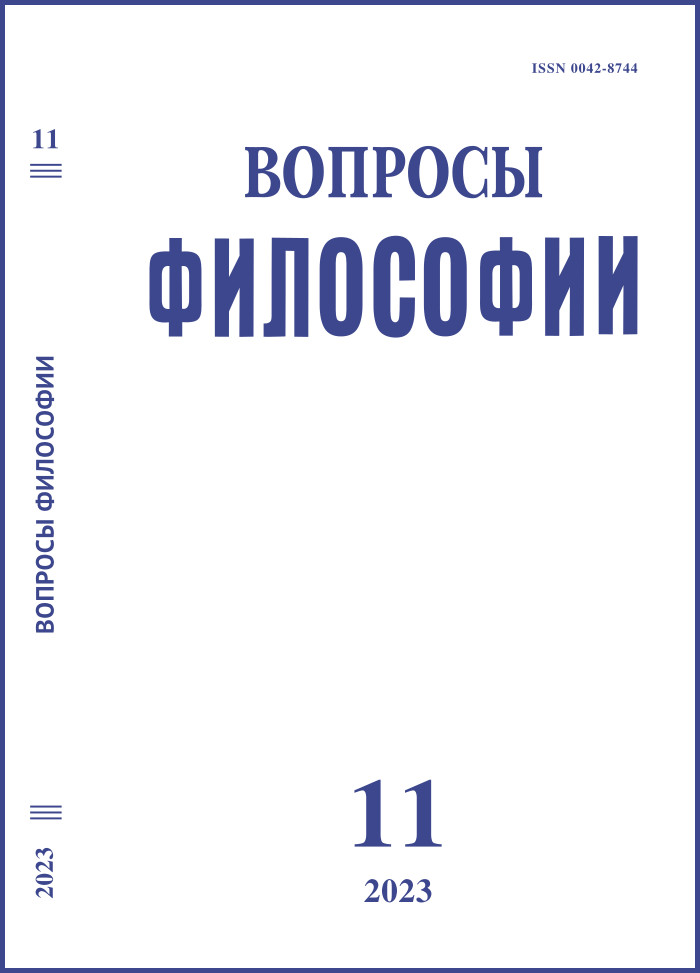Intercultural Polyphony in Philosophy. Reflection on the Book
DOI:
https://doi.org/10.21146/0042-8744-2023-11-34-43Keywords:
intercultural philosophy, dialogue, influence, Western centrism, cultural conditioning, contextuality, national philosophy.Abstract
The article is a review-reflection on the book Comparative Philosophy: from Comparative to Intercultural Philosophy, prepared mainly by employees of the Oriental Philosophy Department of the Institute of Philosophy of the Russian Academy of Sciences. It is noted that the book is the first most complete experience of intercultural philosophizing in the Russian philosophical space. Intercultural philosophy is substantiated as a meeting place for different points of view and philosophical traditions that promote mutual enrichment and stimulate further development in philosophy. Openness to different intellectual traditions while critically considering influences is a normal, natural situation in philosophy. At the same time, intercultural philosophy recognizes the inevitability of asymmetric influences with the potential equality of philosophical traditions, which can also have negative consequences, an example of which is sometimes the dominant influence of Western philosophy. It is indicated that intercultural philosophy proceeds from the idea of decentralization of philosophy, recognizes the issue of the origin of philosophy, which can have more than one beginning, as more difficult, advocates the rejection of Western centrism in philosophy. Within the framework of intercultural philosophy, important questions for the self-determination of philosophy are raised about the connection between philosophy and language, about the specifics of philosophical thinking, about the possibility of philosophical thinking that is different from the Western type of thinking, etc. Followers of intercultural philosophy pay attention to the fact that the periodization of the history of philosophy, methods, interpretive schemes adopted in Western philosophy often do not work on the material of other philosophical traditions. For this reason, followers of intercultural philosophy propose a new model of the history of philosophy, which favors problems over personalities, systems of thought, or countries, and recognizes the cultural determinism of philosophical thinking.

